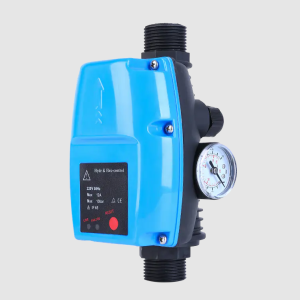The oil and gas industry is a vast and complex field, requiring a range of specialists to ensure smooth and efficient operations. One such specialist is the well planning engineer, who plays a crucial role in the exploration and production of oil and gas resources. In this article, we will delve into the world of well planning engineering and explore the responsibilities, skills, and qualifications required to succeed in this field.
Part 1: The Role of a Well Planning Engineer
A well planning engineer is responsible for planning and designing the drilling of oil and gas wells. This involves using geological data, reservoir modeling, and other technical information to develop a drilling plan that maximizes the extraction of oil and gas while minimizing risk and cost.
The role of a well planning engineer begins at the exploration stage, where they work with geologists and other specialists to identify potential drilling locations. They then use this information to create a well plan that takes into account the geological and physical characteristics of the site.
Once a drilling site has been identified, the well planning engineer creates a detailed plan that includes the drilling trajectory, casing design, mud and cement programs, and wellhead equipment. This plan is crucial for ensuring that the well can be drilled safely and efficiently.
Part 2: Skills and Qualifications Required for a Well Planning Engineer
To become a well planning engineer, one must have a strong background in engineering or a related field. A bachelor's degree in petroleum engineering, mechanical engineering, or chemical engineering is typically required, although some employers may accept degrees in other related fields.
In addition to a strong educational background, well planning engineers must have a range of skills and qualifications. These include:
Knowledge of drilling technologies and techniques
Strong analytical and problem-solving skills
Familiarity with geological data and reservoir modeling
Proficiency in software used for well planning, such as Landmark and Petrel
Good communication and teamwork skills
Part 3: The Importance of Well Planning Engineering
Well planning engineering is a critical component of the oil and gas industry. By creating detailed plans for drilling operations, well planning engineers help to ensure that wells can be drilled safely and efficiently. This is essential for maximizing the extraction of oil and gas resources while minimizing the risks associated with drilling.
Moreover, well planning engineers are responsible for ensuring that drilling operations are conducted in an environmentally responsible manner. This involves minimizing the impact of drilling on the environment and ensuring that all regulations and guidelines are followed.
Part 4: Challenges Faced by Well Planning Engineers
Well planning engineering is a challenging field that requires a range of skills and qualifications. Some of the main challenges faced by well planning engineers include:
Dealing with uncertainty - Drilling operations can be unpredictable, and well planning engineers must be able to adapt to changing circumstances and make decisions on the fly.
Managing risk - Drilling is a risky operation, and well planning engineers must be able to identify and manage risks to ensure safe and efficient operations.
Staying up to date with technology - The oil and gas industry is constantly evolving, and well planning engineers must stay up to date with the latest technologies and techniques to remain competitive.
Working under pressure - Drilling operations can be high-pressure situations, and well planning engineers must be able to perform under these conditions while maintaining their focus and attention to detail.
Part 5: The Future of Well Planning Engineering
The future of well planning engineering looks promising, with increasing demand for oil and gas resources driving the need for skilled professionals in this field. As technology continues to advance, well planning engineers will need to stay up to date with the latest developments to remain competitive.
Furthermore, with a growing emphasis on environmental sustainability, there is a need for well planning engineers to incorporate eco-friendly drilling practices into their plans. This will require an understanding of the environmental impact of drilling and the ability to develop plans that minimize this impact.
Another trend that is likely to shape the future of well planning engineering is the increasing use of automation and artificial intelligence (AI) in the industry. AI can be used to analyze large amounts of data, enabling well planning engineers to make more informed decisions about drilling operations.
Additionally, as the industry continues to evolve, there may be a shift towards renewable energy sources such as wind and solar. This could create new opportunities for well planning engineers to apply their skills and knowledge to the development of renewable energy infrastructure.
Overall, the future of well planning engineering looks bright, with new opportunities emerging as the industry evolves. Well planning engineers will need to stay up to date with the latest technology and environmental practices to remain competitive in this dynamic field.
Well planning engineering is a crucial component of the oil and gas industry, responsible for designing and planning drilling operations. The role requires a range of skills and qualifications, including knowledge of drilling technologies, strong analytical skills, and familiarity with geological data and reservoir modeling. Well planning engineers face a range of challenges, including dealing with uncertainty, managing risk, staying up to date with technology, and working under pressure. The future of well planning engineering looks promising, with increasing demand for oil and gas resources driving the need for skilled professionals in this field. As technology continues to advance, well planning engineers will need to stay up to date with the latest developments to remain competitive. Additionally, there is a growing emphasis on environmental sustainability, and well planning engineers will need to incorporate eco-friendly drilling practices into their plans.







